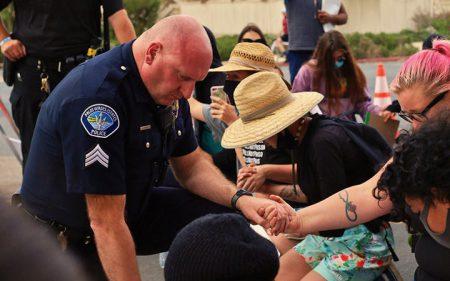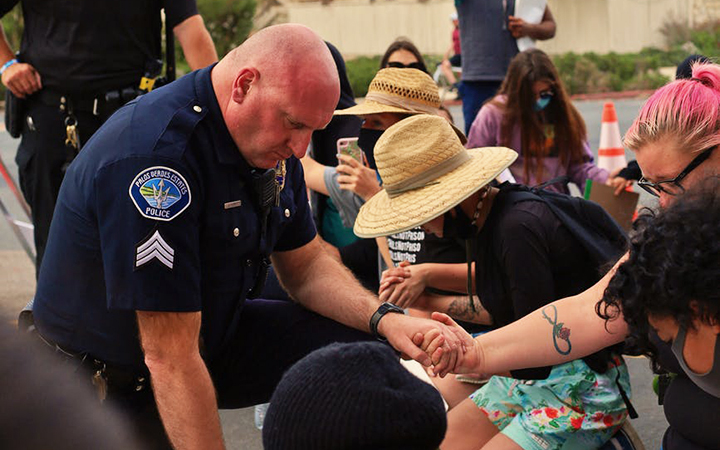
By Lydia Regalado,
campus editor
Recent media discourse over police liberties led the NW Criminal Justice Club to host an event which helped students understand their rights during police stops.
NW criminal justice training coordinator Jim McGregor, a former Bexar County police officer, said there is a lot of misunderstanding about when a police officer can stop someone.
“It’s a little bit more involved than just saying, ‘Well, this guy looks suspicious,’” McGregor said.
The difference between reasonable suspicion and probable cause, and whether one is being detained or under arrest affects the rights of officers and citizens.
Reasonable suspicion is necessary for detainment — holding an individual for further investigation — and is when a person is in a suspicious place under unordinary circumstances.
For example, although uncommon, a person carrying a T.V. down the sidewalk is not doing anything illegal, McGregor said.
“They could have bought it at a garage sale, or are taking it over to watch a game at a friend’s,” McGregor said. “Now take the same person in the same place carrying the same television at three o’clock in the morning. Because of the time of day it is much more unusual and therefore more suspicious.”
An officer can detain the citizen to investigate why they are out at that time of night and where the television came from, McGregor said. They are not under arrest, but they cannot just turn around and walk away either.
“I can ask him some questions, but he’s not required to answer any of these questions,” McGregor said. “If he does decide to tell me his name, he has to tell me the truth.”
There has to be the higher legal level of probable cause — specific facts of a particular crime being committed — before other actions can be taken.
“It is not enough proof to convict someone in a court of law, but it is enough to get a search warrant, arrest someone, or conduct a search of a vehicle.”
McGregor said being under arrest is the only time it is required to identify oneself.
Although citizens have a right to question the police, he advises against talking to officers in a challenging or spiteful way.
“It’s going to extend the length of time that you’re going to be detained and you could get handcuffed because the officer is going to interpret this behavior as belligerent and potentially as a threat to their safety,” McGregor said.
There is a lot of misinformation on social media which paints police in a negative light, he said.
“The last thing we do is sit in the squad room at the beginning of our shift and say, ‘Alright, let’s go and pick on people today,’” he said. “We’re responding to calls, we’re out there trying to help people, we don’t try to hurt folks.”
NW student Shacori Johnson said although she has been pulled over many times for speeding, officers were always respectful.
“It’s all about how you treat people and it goes both ways,” Johnson said.
NW associate professor of criminal justice Tracy Hearn, a former Dallas police officer, said the ability to have discussions can help everyone understand each other.
“I think it is important to open dialogue with citizens and officers to enhance trust, understanding and mutual respect,” she said. “Hopefully today’s event did that.”
The club’s next event will cover the trial of Derek Chauvin, the former officer accused of murdering George Floyd. Students can join the organization through Blackboard.

